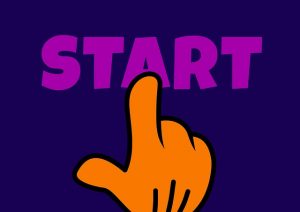Emotional Charge in Memoir

In every story, both fiction and non-fiction, all the best writing teachers tell us there has to be a main goal, an overarching question, a deep desire or an obsession. This powerful thread throughout the story keeps a reader engaged and committed to reaching the story’s end in order to find out what happens.
It’s an accepted rule in creative writing.
What About Memoir?
What if you’re writing your life story in a series of isolated events – events which may have been important to you in some way but which don’t seem to adhere to a specific overall mystery to be revealed by the end of the book? What then?
 This is where you have to dig deep to find out a common thread which ties everything together.
This is where you have to dig deep to find out a common thread which ties everything together.
These stories are memorable for a reason. Perhaps they’re recollections of important milestones. Perhaps they’re invested with a major life lesson, an embarrassing moment, or a particularly happy day when for once, everything went well.
They could be first times – your first kiss, the first time you received an award, the first time you did an exceptional job at something. Or it could be the first time you were a victim and learned that some people are ruthless, thoughtless, careless or even deliberately evil.
Start at the Beginning

When first we sit down to write your memoirs, usually we start by writing down a collection of significant, unrelated events. Most people begin at the beginning with the first thing they remember and progress from there…childhood memories, schoolyard happenings, then into the rebellious teenage years and on into adulthood.
While this is a perfectly legitimate method of recording our memoirs, it’s usually missing that element that keeps the reader wanting to finish…that common thread, the unanswered question. We need to figure out what that common thread might be.
Find the Emotional Charge
In the vast majority of cases, we tend to forget the day-to-day happenings, but the life events we do recall in detail are invariably invested with some kind of emotional charge.
 My first kiss, for example – what emotion was I feeling? Was it excitement? Anticipation? No, it was the fear of embarrassing myself! What if my nose gets in the way? How much tongue, if any? Are my lips soft enough? Is it supposed to feel this wet? I don’t know what I’m doing!
My first kiss, for example – what emotion was I feeling? Was it excitement? Anticipation? No, it was the fear of embarrassing myself! What if my nose gets in the way? How much tongue, if any? Are my lips soft enough? Is it supposed to feel this wet? I don’t know what I’m doing!
To find the common thread in your memories, you should review your collection of written stories and see if you can identify the emotional charge attached to each one. Then look for a way these emotional charges might relate to each other. Is there some commonality between them? Some way that each emotion gives you clues to a deeper personality trait.
Look for the Clues
Each of these emotional events is a clue to your inner life…who you are, the true you. They indicate a fundamental part of you that makes up your personality. It may not be the face you show to others, but it’s the one you know you are deep down…that secret self that you often keep hidden. (In investigating the memory of my embarrassing first kiss, it led me to a realization that I was inherently shy, an introvert, which provided additional insight into my motivations and decisions as an adult.)
In novels, films, tv shows, and in good memoirs, it’s the willingness and the ability of the writer to show that vulnerability and a clearly-defined revelation of the character’s inner life that helps readers and viewers relate to the story on an emotional level. Because readers recognize the emotional charge, they understand the character’s motivations, even if the actual decisions and actions of the character are far outside their own experience.
An Ordinary Life
 In the case of memoir, maybe your life wasn’t some big adventure concluding with a happily ever after. Maybe it was simply a slow progression of ordinary events, leading to where you are now. Maybe you don’t have some vital message or lesson to impart to posterity.
In the case of memoir, maybe your life wasn’t some big adventure concluding with a happily ever after. Maybe it was simply a slow progression of ordinary events, leading to where you are now. Maybe you don’t have some vital message or lesson to impart to posterity.
But your story is important. In telling it, you’re providing a portrait of the person you’ve become, of the times and places in which you’ve lived.
Maybe, your common thread is a really simple one – just open up, be vulnerable, and let your reader see who you truly are.
Happy Writing!


One Comment
Pingback: